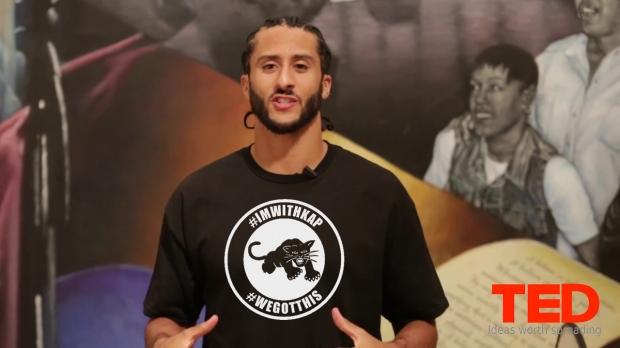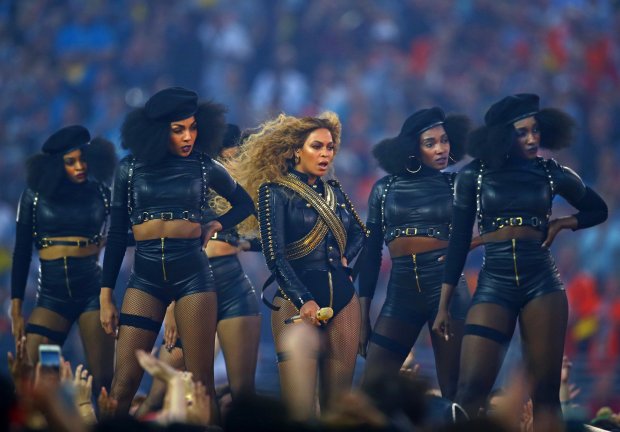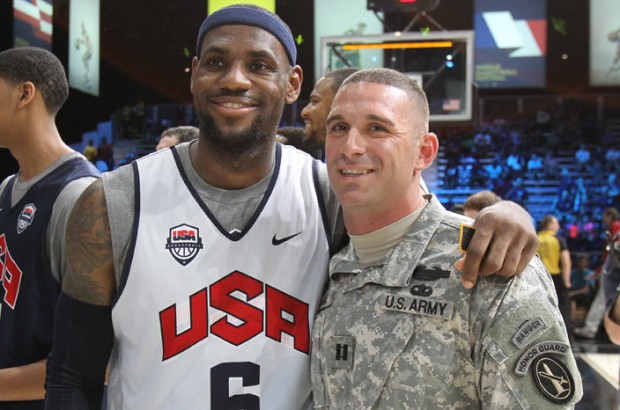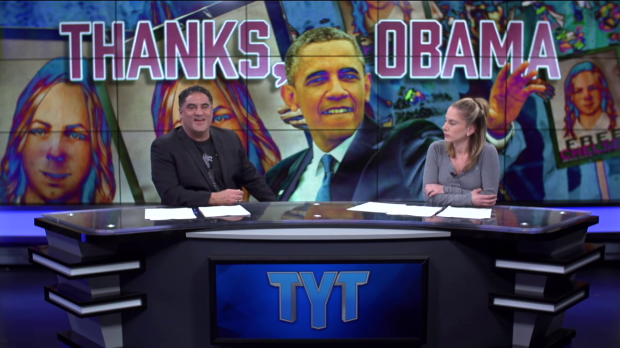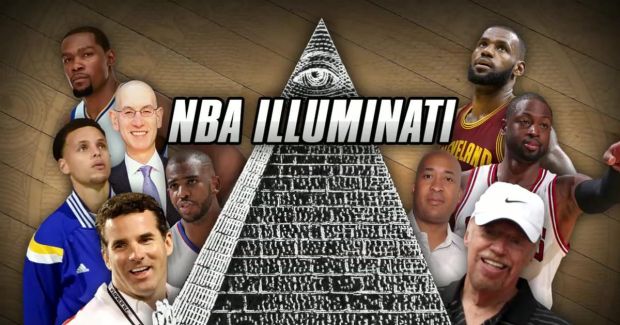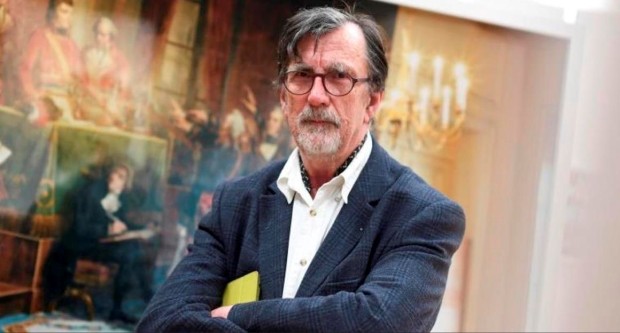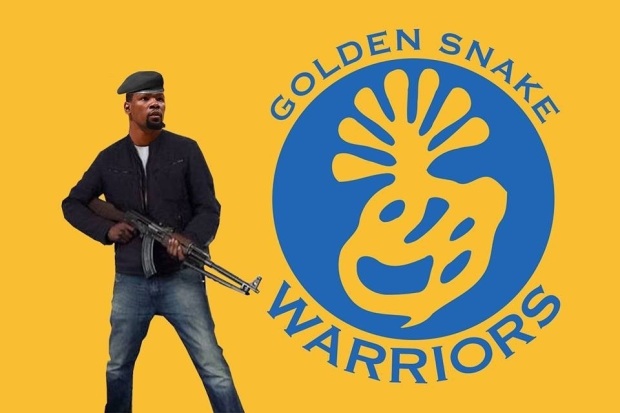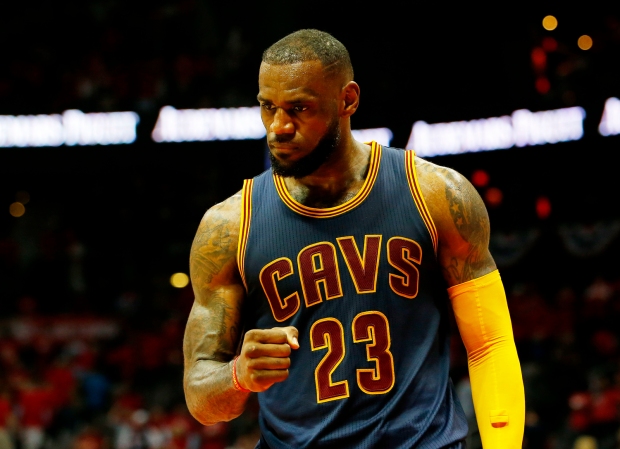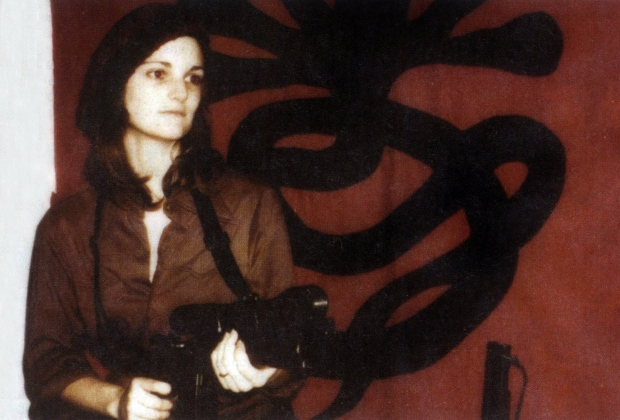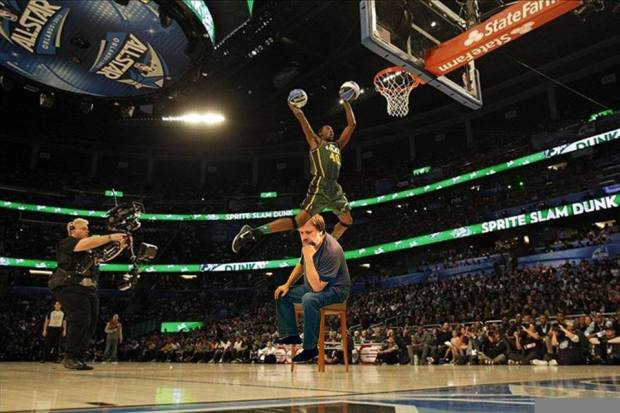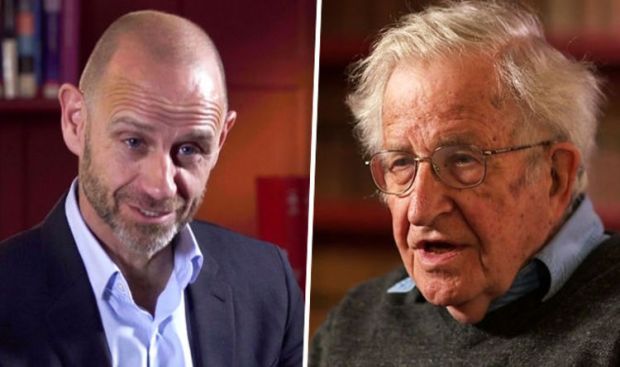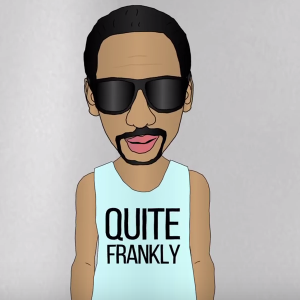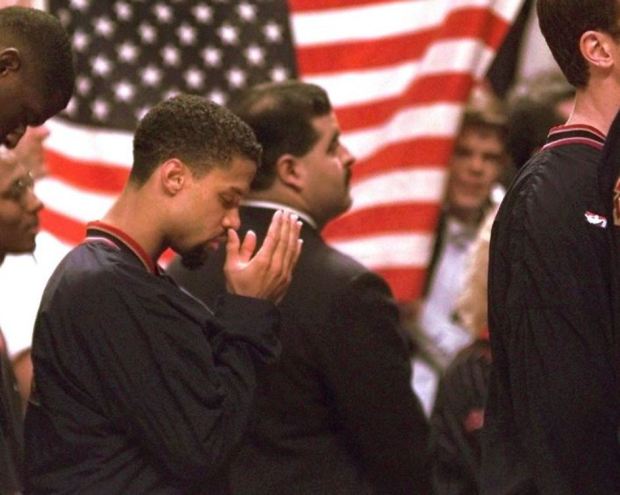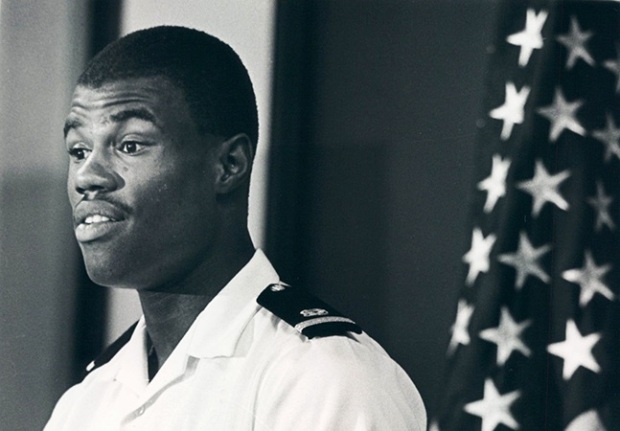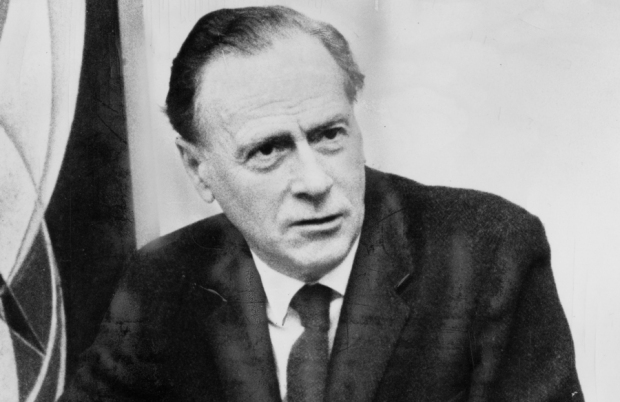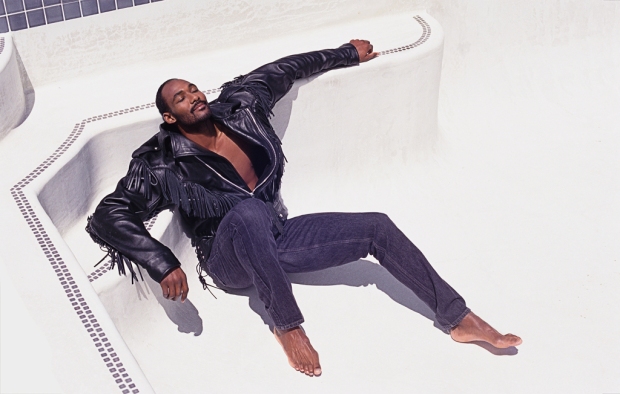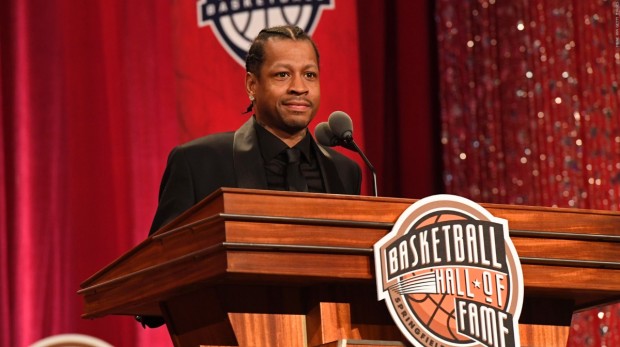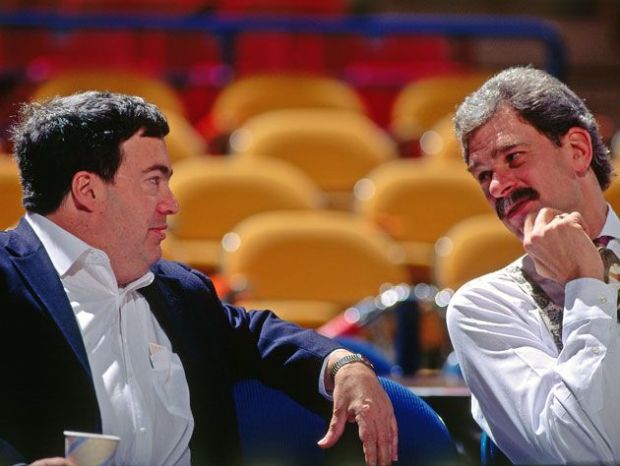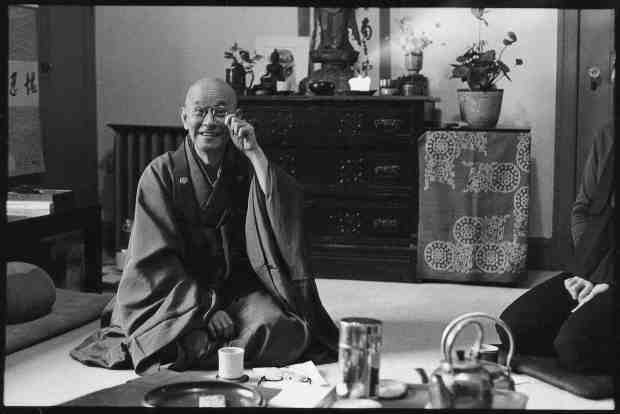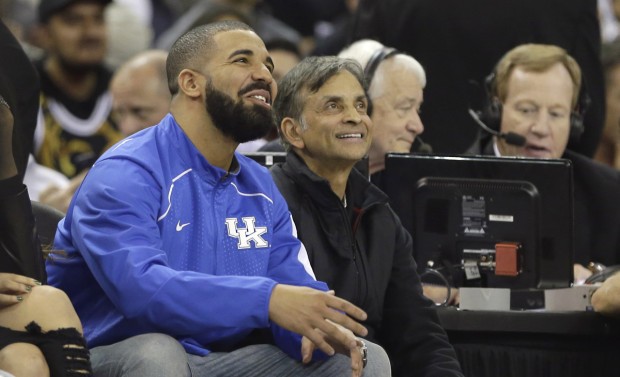Basketball, Reality Programming, and Programming Reality
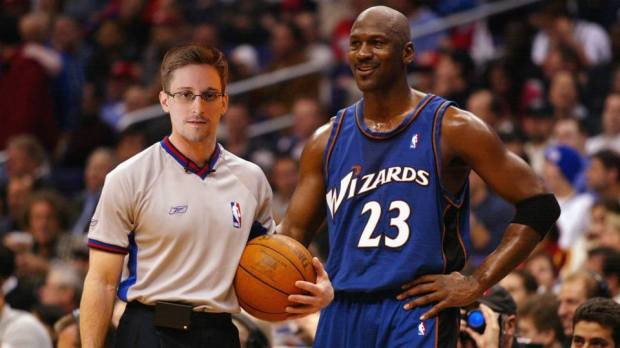
We’re an empire now, and when we act, we create our own reality. And while you’re studying that reality—judiciously, as you will—we’ll act again, creating other new realities, which you can study too, and that’s how things will sort out. We’re history’s actors…and you, all of you, will be left to just study what we do[1].
The 2017–18 NBA season has been underway for a couple of weeks now, and keen-eyed observers will likely have noticed a few interesting things about the new uniforms that have been introduced league-wide. Aside from the obvious fact that they are all hideous and ill-fitting[2], a handful of teams have struck jersey sponsorship deals and now boast garish corporate logos just above their player’s hearts.
Starting this season, Orlando Magic players will wear Disney logos on their jerseys. This is no great surprise; Disney World is located in Greater Orlando, and the team name is an obvious allusion to Disney’s “Magic Kingdom.” Less well-known is the fact that Disney owns ABC and ESPN, which, between them, broadcast the majority of nationally televised NBA games.
Why is this interesting? Described by David Kunzle as “arguably, the [twentieth] century’s most important figure in bourgeois popular culture,” and a man who “has done more than any single person to disseminate around the world certain myths upon which that culture has thrived,” Walt Disney was, of course, a fascist[3] and an anti-communist FBI snitch. Henry Giroux sums up Disney’s mission:
There are few cultural icons in the United States that can match the signifying power of the Disney Company. Relentless in its efforts to…send into the community an endless stream of representations and commodities that conjure up a nostalgic view of the United States as the “magic kingdom,” the Disney Company has become synonymous with a notion of innocence that aggressively rewrites the historical and collective identity of the American past.
While Disney owns ABC outright, it shares ESPN with the Hearst Corporation (which owns 20%). Its founder, William Randolph Hearst, was (surprise!) a zealous fascist responsible for publishing all manner of pro-Nazi and anti-communist propaganda in the United States. As we explored in last month’s instalment, the NBA, like other American sports leagues (and like Disney), is quite keen to team up with the fascist US military in order to produce fascist propaganda of various kinds. I mention this at the outset because I think it’s worth bearing in mind that much of the NBA entertainment we view is curated and framed by fascist media empires intent on promoting fascist messages. I do think this is noteworthy, and not a coincidence or an irrelevance. As Michael Parenti observes, “even a sector of the entertainment media such as sports reportage, which has no narrative line, can be permeated with anticommunist, militaristic, and chauvinistic imagery.” Major American media of all kinds have historically been very receptive to fascism, and I really don’t see any indication that this state of affairs has changed.

Disney has patented—”sewn up all the rights on”—tomorrow as well as today. For, in the jargon of the media, “he has made tomorrow come true today,” and “enables one to actually experience the future.” His future has now taken shape in Walt Disney World in Orlando, Florida; an amusement park which covers an area of once virgin land twice the size of Manhattan … With its own laws, it is a state within a state. It boasts of the fifth largest submarine fleet in the world[4].
But enough about Disney (for now); it’s Halloween, and we’re going to take a look at some spooks. Ten years ago, the NBA found itself in the midst of a gambling scandal. Referee Tim Donaghy appeared to have been busted by the FBI for betting on—and fixing—a number of games, and was ultimately sentenced to 15 months in prison on July 29, 2008 as a result of misconduct during his final two seasons. Shortly before his sentencing, however, Donaghy attempted to blow the whistle (ha…) on the NBA itself, alleging that the league regularly fixed games in order to sell more tickets and boost television ratings, and that all of its referees were in on the scam. Donaghy would go on to write a book, and, after serving his sentence, establish a niche for himself on the periphery of NBA-related media, giving interviews and fuelling ever more speculation about the latest in referee skulduggery.
In summary, a rogue official caused a considerable stir by deciding to leak information concerning unscrupulous institutional practices (about which everybody already knew), and, following his “revelations,” nothing whatsoever appears to have changed (the NBA, in case you’re wondering, is indeed fixed). This should have a familiar ring to it.
Donaghy’s narrative arc matches that of Edward Snowden, a man who is almost certainly not what he says he is. I don’t intend to devote much space here to the Snowden psyop theory—this work has already been done by other more capable people who were on the ball as the saga unfolded, so if you’re unfamiliar and are curious (or sceptical), I recommend you click these links. Briefly, there is a compelling argument to be made that Snowden’s exhaustively promoted and image-laden whistleblowing caper was a limited hangout. Indeed, now that surveillance is more pervasive, invasive, and normalised than ever, Snowden has declared his mission accomplished.
Whether or not we ever get to the bottom of who Snowden really is, whether he is still working for the CIA, etc., we can learn quite a bit from the entertainment media by which he is presented to us. Most people have come to know Edward Snowden through slick, well-produced documentaries, Vice Interviews, Hollywood films, and, famously, the fascist platform that is Twitter[5].
Oliver Stone’s Snowden (2016) helpfully provides audiences with the official version of events in one neat, entertaining package. The film affords Snowden yet another opportunity to tell his tale, framed and lit just right, adding another layer of fiction to the already fictional Citizenfour (2014), and supplanting whatever real images and fragments might remain in viewers’ minds with dramatic re-enactments of dramatic re-enactments[6].
The film quite explicitly lays out Snowden’s mission to preserve America’s spying apparatus and protect ruling class interests: “Look, I had access to the entire intelligence community, so if I had wanted to harm the US, you could shut down the entire surveillance system in an afternoon. But that was never my intention.” The blurring of reality and fiction reaches its climax at the end of the film when the real Ed Snowden replaces Joseph Gordon-Levitt on the screen and delivers his concluding remarks: “I no longer have to worry about what happens tomorrow, because I’m happy with what I’ve done today.” Mission accomplished. Unfortunately, the rest of us do still have to worry about what happens tomorrow.
In addition to tying up loose ends by retroactively providing sanitised, official narratives for otherwise confusing or controversial episodes in history, Hollywood films can be utilised to alter public perceptions in advance of major events. Edward Snowden, for instance, may have been “predicted” by Enemy of the State (1998). One of the most famous examples of “predictive programming” is Disney’s Pearl Harbor (2001).
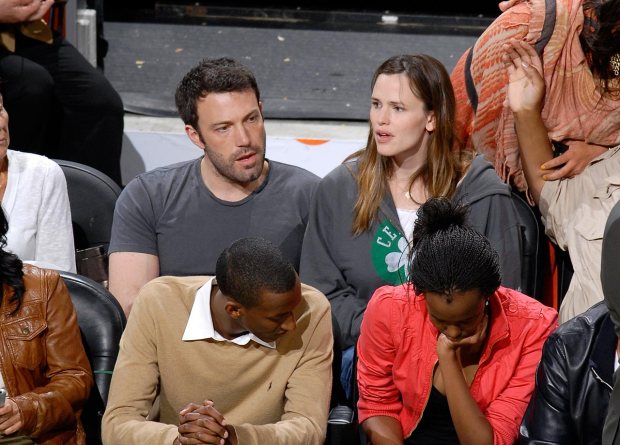
Agent Affleck and his handler Jennifer Garner enjoy a fascist spectacle[7].
Produced with the assistance of the Pentagon, and starring CIA agent Ben Affleck, Pearl Harbor appeared in cinemas in May 2001, less than four months before 9/11. In the immediate aftermath, every politician, pundit, and academic drew the seemingly natural comparison between the two events. As Noha Mellor writes,
a study about American and British coverage of 9/11 attacks found that newspapers frequently resorted to history to draw on comparison and analogies with previous events, such as those from World War II. Historical context here helps journalists interpret this event while tapping a collective memory. It was particularly the memory of Pearl Harbor that was commonly used in British and American newspapers to link 9/11 to the past. As Brennen and Duffy (2003: 3) observe: “journalists and citizens struggled to find a way to frame the disaster socially and historically. ‘it’s another Pearl Harbor’ was a frequent comment uttered by pundits and politicians alike.”
But were commentators really drawing from “history” and “the memory of Pearl Harbor”? Where did this “memory” come from? More accurately, they were tapping a collective memory of representations of Pearl Harbor in popular culture. Mellor continues:
Moreover, the images showing the gradual collapse of the towers lend resonance to the images of Hollywood action movies, as shown in the American coverage (Nacos 2003: 25). In a comment on this resemblance to fiction, the American novelist John Updike said that “the destruction of the World Trade Center twin towers had the false intimacy of television, on a day of perfect perception” (quoted in Nacos 2003: 26) … Each of the Arab newspapers examined here picked up on these blurring boundaries between fact and fiction in this unprecedented event, seemingly indicative of Hollywood entertainment, in order to stress the public disbelief.
That the actual events of Pearl Harbor and 9/11 were nothing alike doesn’t matter. The fictional Pearl Harbor is more real to Americans than any first-hand account. When PNAC signatories suggested in 2000 that “a new Pearl Harbor” would be a useful catalyst for “rebuilding America’s defences,” we can read this literally as a desire for a Michael Bay dramatisation, because it was this false memory of Pearl Harbor—Disney’s signature “innocence that aggressively rewrites the historical and collective identity of the American past”—which helped to prime Americans for the subsequent invasions of Afghanistan and Iraq.
As Geoffrey M. White explains, a preoccupation with historical trivia obscured for many critics the utility that Pearl Harbor had as war propaganda:
Over the years, Hollywood and the U.S. military have formed innumerable partnerships in the production of war films—partnerships that can, potentially, raise questions about the image-making power of the military-corporate complex and its stake in producing inspiring stories for purposes of profit, public relations, and recruitment. These sensitivities provide yet another rationale for attention to matters of “accuracy,” to telling the story “the way it was,” as attested by military historians and veterans. Yet, raising questions of historical accuracy has the ironic effect of deflecting the viewer’s gaze from such questions of politics and purpose to concern with specific details and inaccuracies. With attention focused narrowly on the truth of details in a given text, larger issues of context never arise.
Similarly, a narrow focus on the particular details of this or that leaked document may deflect the viewer’s gaze from more pertinent questions concerning Edward Snowden’s identity (CIA agent) and agenda (promoting American imperialism). This applies equally to the Donaghy case: the result of the Tim Donaghy scandal has been to attract considerable attention to the sanctioned conspiracy (the NBA is fixed), while deflecting the viewer’s gaze from some of the NBA’s more nefarious activities. There are, for example, documentaries about the refereeing in the 2002 Western Conference Finals, but very little is said about the friendly and lucrative relationship between the NBA and the US Army[8].
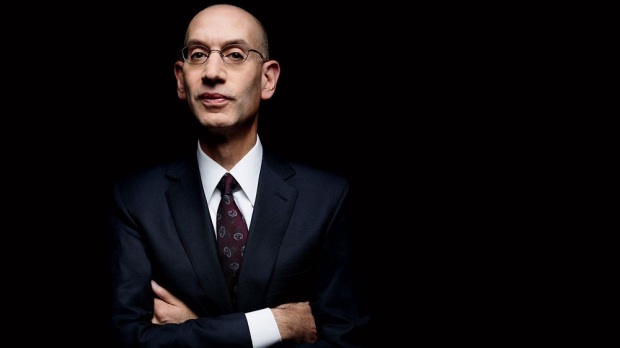
What is real, then, is what can be (like the signifier) perfectly programmed, controlled, and reproduced each and every time from a preexisting symbolic model or “simulation.” There is thus no “reality” or Real in the Lacanian sense; what is real refers back each and every time not to something, but to a model, a program, a simulated hyperreal[9].
As well as investing in Hollywood productions and sporting events, the Pentagon is very interested in reality television, as a glance through its Entertainment Liaison Office reports will reveal. This interest is shared by NBA commissioner Adam Silver, who considers NBA basketball “the ultimate reality programming[10].” As with other forms of popular entertainment, it is unwise to dismiss reality television as meaningless or unworthy of our attention. On the contrary, as David R. Dreyer explains:
Reality television programming has become a pervasive part of popular culture. Although such programming may seem to be mindless entertainment, it can serve as a tool to introduce political lessons … An analysis reveals that contestants often behave strategically when forming alliances and voting, in ways that are similar to the strategic behavior of nation-states and individuals residing in democracies, respectively.
Are the NBA and the Pentagon using reality television formats to promote fascism? “There is,” writes Karen D. Austin, “no reason to suspect that the producers of American Idol, Survivor, and all of the other new reality shows are driven by any ideological agenda larger or more comprehensive than making money.” Yes, exactly! But the ideological agenda of making money at any cost—of capitalism—is vile and poisonous, and if government agencies can use films as psychological weapons, of course they are doing the same with reality television shows. The NBA already has a popular reality television series underway, and with ESPN ranking college basketball players by their reality television potential, we can expect to see many more such shows in the future.

In his typically provocative way, Baudrillard claims that in industrialized societies capital has attained such sophistication in the manipulation of popular consciousness through the interdefinition and the constructed character of contemporary media products (both news and entertainment) that it no longer needs to substantiate its claims in real terms to the public. He describes this situation by positing what he calls the “precession of simulacra” which generates what he calls “the hyperreal.” The hyperreal is that realm of appearances which are “dishonest” not merely in failing to faithfully copy their originals in structural terms but in failing to copy at all. In other words, this is the realm of simulacra that functions in the absence of corresponding real things which could serve as models for pretended likenesses represented by simulacra. Baudrillard’s view is that the public is now used to authentications of simulacra by other simulacra[11].
It is interesting to note the similarities between the activities of Colin Kaepernick, Tim Donaghy, Edward Snowden, Ben Affleck, Bana Alabed, etc. As Adorno and Horkheimer wrote of the culture industry,
Not only are the hit songs, stars, and soap operas cyclically recurrent and rigidly invariable types, but the specific content of the entertainment itself is derived from them and only appears to change. The details are interchangeable. The short interval sequence which was effective in a hit song, the hero’s momentary fall from grace (which he accepts as good sport), the rough treatment which the beloved gets from the male star, the latter’s rugged defiance of the spoilt heiress, are, like all the other details, ready-made clichés to be slotted in anywhere; they never do anything more than fulfil the purpose allotted them in the overall plan.
I think it is useful to view what is known as “predictive programming” from this angle. Rather than creating in advance media which “predict” specific events and prescribe the ways in which audiences are to conceive of such events, it is perhaps more accurate to say that the same stale but effective narratives are constantly being acted out (on film sets, on football fields and basketball courts, on Twitter, in “real life”) by actors (willing or unwitting as the case may be), in order that “history’s actors” may always have new realities at their disposal.
As always, thank you for reading, and death to the United States of America.
[1] A senior advisor to George W. Bush, speaking in 2002, and cited by Ron Suskind in the New York Times, October 17, 2004.
[2] I am convinced that the drab and displeasing colours of more recent NBA uniforms are a form of psychological warfare, but this is a topic for another time.
[3] To get a sense of “the iron fist beneath the Mouse’s glove,” do take a look at How to Read Donald Duck, an exploration by Ariel Dorfman and Armand Mattelart of the ways in which the images and stories found within Disney comics—and disseminated around the globe—naturalise capitalism and imperialism.
[4] From the introduction of How to Read Donald Duck.
[5] Predictably, Snowden’s Twitter activity includes (but is not limited to): chauvinistic American exceptionalism; promoting “regime change” in Syria; equating communists with fascists.
[6] I re-watched Citizenfour while writing this, and during the scene in which Glen Greenwald initially begins to interrogate Snowden, I expected Laura Poitras to interrupt him and suggest that “we just start with your name.” A “real” scene from this documentary had been replaced in my memory by a scene from Oliver Stone’s film. These tricks work.
[7] Speaking of basketball and hyperreality, Ben Affleck was once interviewed for ESPN and recounted a story in which he was playing basketball and leapt “like six feet off the ground” to block a layup attempt by Matt Damon. Asked when this had occurred, Affleck responded, “I’m not sure that actually took place. I think it might have been an implanted memory.”
[8] A relationship that the US Army is eager to take to the next level. You can sense their frustration with the “limited messaging impact” of having troops parade about before a Clippers game, and they write elsewhere in their ELO reports that they want to “attract larger roles with…sports entertainment networks for future Army-related stories.”
[9] Anthony Kubiak, Disappearance as History: The Stages of Terror.
[10] The ambiguity of this statement is interesting—is he talking about the reality television format, or about programming (an audience’s perception of) reality?
[11] Thomas Heyd, The Real and the Hyperreal: Dance and Simulacra.


